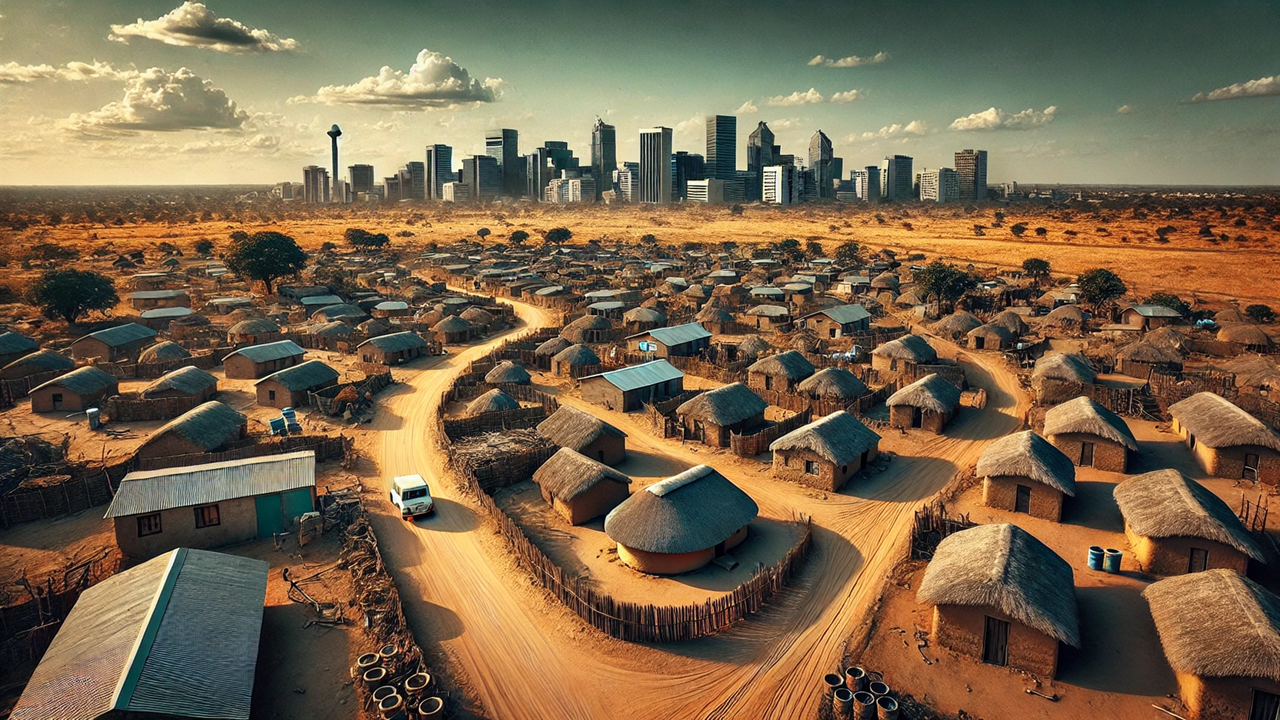Botswana’s Battle Against Poverty: Progress Slows as Inequality Widens
Botswana’s poverty reduction progress has stalled in recent years, with rural poverty rates rising and inequality widening. The Botswana Poverty Assessment by the World Bank highlights that while urban areas have seen improvements, rural regions continue to struggle, with many lacking access to basic services like electricity and sanitation. To address these issues, Botswana needs to diversify its economy, invest in rural infrastructure, and strengthen its social protection programs. Improving data collection and monitoring will also be critical for effective policy design moving forward.

Botswana’s economic transformation over the past few decades has been nothing short of remarkable, driven by diamond wealth and political stability. However, a recent poverty assessment reveals that progress in poverty reduction has slowed, and inequality remains alarmingly high.
A Once Bright Economic Star Faces New Challenges
Botswana, often praised for its rapid diamond-led growth and steady governance, has seen a slowdown in its economic progress over recent years. Once hailed as one of Africa’s fastest-growing economies, the country's reliance on diamond revenues, while fostering infrastructure development and improved living standards, has not been enough to sustain significant job creation and poverty reduction.
The Botswana Poverty Assessment report by the World Bank reveals that while poverty rates decreased from 31% in 2003 to 16.1% in 2016, the reduction has slowed significantly in recent years. Moreover, inequality remains a major issue. Botswana now ranks among the top 10 most unequal countries in the world, with rural areas particularly affected by rising poverty rates.
Rural Areas Bear the Brunt of Inequality
One of the report's most concerning findings is the widening gap between rural and urban areas. While poverty has fallen in cities, rural regions such as the North-West and Ghanzi districts have seen an increase in poverty, rising to 26.8% in some areas. In comparison, urban poverty has plummeted, with poverty rates in cities like Gaborone and Francistown dropping to as low as 3.3%.
This sharp contrast highlights Botswana’s challenge: economic growth, heavily driven by diamonds, has not translated into significant benefits for rural populations, many of whom rely on subsistence farming. The 2015 drought, along with water and electricity shortages, disproportionately affected these rural communities, pushing many into deeper poverty.
Multidimensional Poverty Reveals Deep-Rooted Inequities
Beyond income-based poverty, the report highlights the issue of multidimensional poverty. Access to basic services like electricity, sanitation, and clean water remains a significant challenge, particularly in rural areas. While urban centers have seen improvements, many rural households still lack access to these essential services, exacerbating the poverty divide.
For example, nearly two-thirds of rural households in Botswana do not have access to improved sanitation, compared to 45% in urban areas. This lack of infrastructure severely limits economic mobility and quality of life, trapping many in a cycle of poverty that is difficult to escape.
Social Protection: A Lifeline with Room for Improvement
Botswana's social protection system has long played a crucial role in mitigating the impact of poverty. The country's 29 programs, spread across nine ministries, help cushion the blow for the poorest citizens. Without these transfers, the poverty rate would have been nearly 24% in 2016, according to the report.
However, despite its successes, the system faced significant challenges during the COVID-19 pandemic. The government’s response leaned heavily on emergency feeding programs and wage subsidies, rather than expanding social grants. While this helped many during the crisis, the limitations of such an approach became apparent, particularly in rural areas where access to consistent support is vital.
Renewed Pathways for Poverty Reduction
To reverse the current trends, the World Bank report emphasizes the need for Botswana to adopt new strategies. First and foremost, the country needs to diversify its economy beyond diamonds and public sector jobs. Private sector-led growth, particularly in labor-intensive industries, is essential to create meaningful employment opportunities.
Additionally, there is a pressing need to invest in rural infrastructure. By improving access to electricity, water, and sanitation, Botswana can boost the productivity of rural populations, allowing them to contribute more effectively to the country’s economy. These infrastructure improvements must be coupled with better education and healthcare services to raise the overall standard of living.
Finally, stronger data collection and monitoring systems are necessary to ensure evidence-based policymaking. The report calls for more frequent household income and expenditure surveys, as well as improved statistical infrastructure, to provide timely insights into the country's progress toward poverty reduction.
- FIRST PUBLISHED IN:
- Devdiscourse
ALSO READ
World Bank Boosts Pakistan's Economic Stability with $700 Million Initiative
Government on Wheels: A Drive Towards Better Infrastructure
Transforming Healthcare: India's Leap in Medical Infrastructure
World Bank Secures $700 Million for Pakistan's Economic Stability
World Bank Approves $50m Project to Accelerate Sri Lanka’s Digital Transformation










